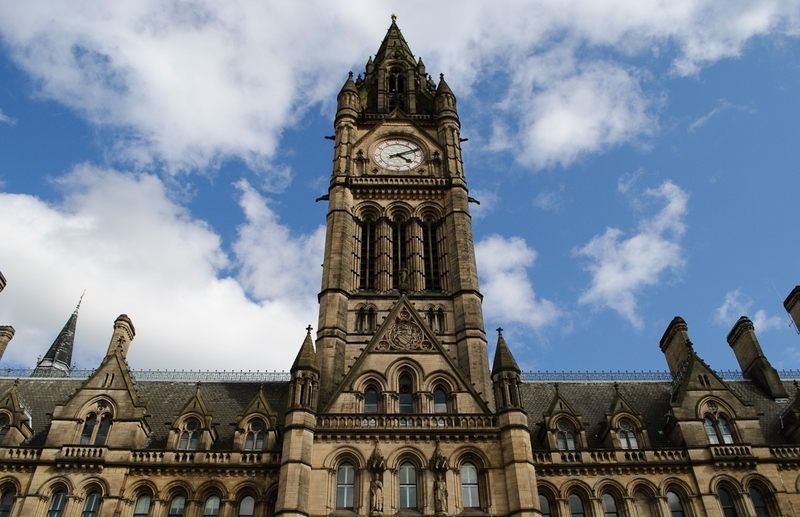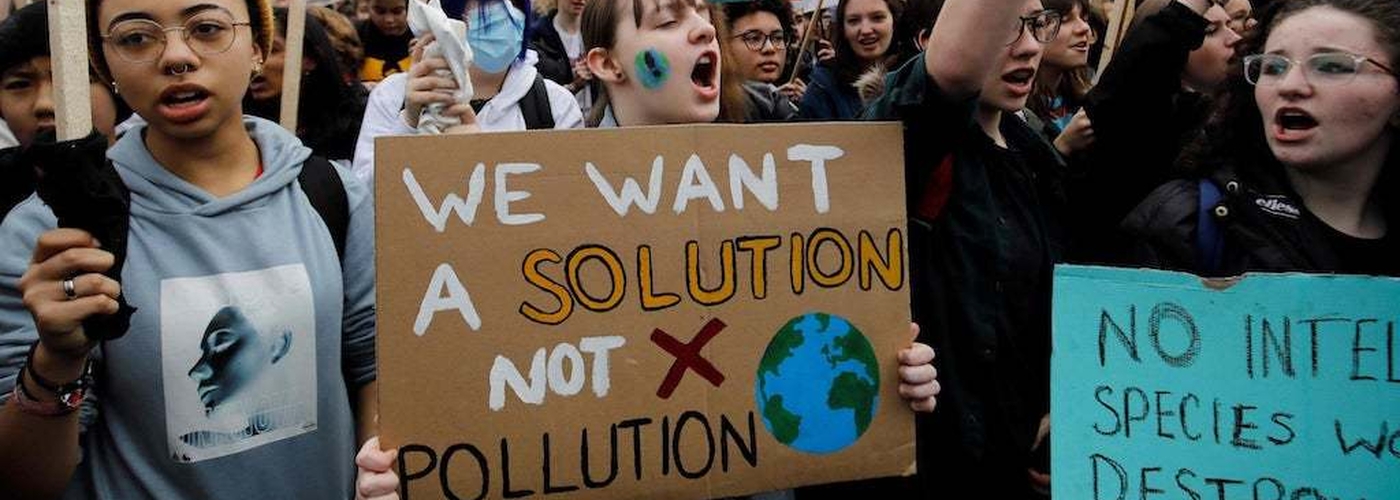Andrea Sandor scrutinises the scrutineers and reports on a recent revolt by Manchester City Councillors
“WAS that a revolt?” a member of the public asked their friend as we filed out of a heated council meeting about the climate. “Basically,” the friend replied. Other words used to describe the meeting were “chaotic” and “shambolic”. The chair of the meeting herself said there was “total confusion”. Council committee meetings are notoriously boring, but stick with me on this one. Now that we're in a climate emergency, it’s essential our local authority has its act together to tackle it. Currently, it doesn’t seem to have.
'If there’s a report, I want to scrutinise it. If that means we have a separate meeting before it goes to the executive, then so be it' – Cllr John Flannagan
Here’s what happened: frustrated by the scrutiny process and lack of clear tangible action being taken against the climate crisis, the Neighbourhood and Environmental Scrutiny Committee (NESC) called for an emergency meeting. This may not sound like a revolt, but it was a committee of ward councillors calling out the executive branch. Councillor John Flannagan’s exact words were, “I’m not here to tick a box.”
The committee is right to feel treated like a rubber-stamping exercise. Last year NESC recommended the controversial Great Ancoats Street ‘improvement’ scheme be sent back to consultation, but this was ignored. Moreover, the decision to ignore the recommendation was taken by the executive member under scrutiny. It’s hard to feel like this is a functioning democratic process.

How scrutiny works (or doesn’t)
Thanks to democracy, we have local ward councillors who sit on scrutiny committees to ensure the interests of their constituents are taken into account. They scrutinise plans before they go to the nine-member executive committee, the council’s main decision-making body: the top dogs, if you will. The plans usually fall under the remit of an executive member, meaning that they are present at scrutiny to answer questions and, at least in theory, take on feedback and recommendations before presenting the plans to the rest of the executive committee.
At this week’s meeting, NESC reviewed and scrutinised the council’s Climate Change Report, as well as the draft Climate Change Framework and Action Plan for 2020-25. Or at least they were meant to. Instead, most of the time was spent discussing and asking for clarity about the scrutiny process itself, with councillors feeling like it isn’t being done in a clear and transparent way.
Councillor Annette Wright said: “My motion about the climate emergency said there should be an open and transparent review to determine what the earliest possible date [...] but I don’t think we’re having an open and transparent review.” Part of the problem is that reports either seem to be too dense or too light on detail, as Wright continued: “If an average lay person can’t understand what’s going on then it’s not being presented in the right format.”
Some councillors also don’t feel they’re given enough time to effectively scrutinise reports. Of another report, the committee chair Councillor Lee-Ann Igbon said: “This committee cannot sign something off that they’ve not been involved in, and we’re only just seeing this today, it’s ridiculous.”
Another issue is whether the right reports are being written. Councillor John Flannagan was particularly concerned there’s no report detailing what work is currently underway to combat the climate crisis. “I want to see a report that tells me what we’re already doing [...] I want to know we’re doing the best we can with the money we’ve got […] Yes, let’s lay the blame where the government isn’t funding it, but then we have to go a pragmatic way around that. I’m not seeing that in the reports.”
There was also confusion as to whether there would be another report sent directly to the executive and bypassing scrutiny all together. This was the straw that broke the camel’s back and led to Flannagan calling for an emergency meeting. He said: “If there’s a report, I want to scrutinise it. If that means we have a separate meeting before it goes to the executive, then so be it.” By the end of the meeting, it was still unclear whether such a report exists.
We have to take a moment to acknowledge that councillors and civil servants have doubtless been working extremely hard and are severely under-resourced. It’s crazy to think the task of overseeing climate change seems to fall to a single executive, which already has a full portfolio, and to the Manchester Climate Change Agency (MCCA), which has a robust staff of two.
Environmental activists are leading the way
What we’re seeing now is leadership coming from outside the council, and often in opposition to it. The difference between a ‘leader’ and an ‘activist’ is your relationship to power. If the council embraced the city’s activists, they could become recognised as leaders and carry the council with them.
It’s encouraging to see this happening at ward level. Councillors are embracing recommendations made by environmental group Climate Emergency Manchester (CEM). This group of unpaid activists is earning its stripes, fastidiously scrutinising the council’s climate actions and producing quarterly reports with tangible recommendations. In its last report, CEM made Freedom of Information Requests on each of the 23 points in the Climate Emergency Declaration to find out what had been done towards them. The conclusion: not much.
Live now: Manchester carbon zero plan council meeting. Finance boss Carol Culley says: ‘carbon zero end date is almost irrelevant if we do not take decisive action to halve our emissions in the next five years‘ (thread)
— Claire Stocks (@stocksyatlarge) February 5, 2020
The group published a briefing paper about the draft action plan, and two recommendations within it were taken forward by two councillors. Wright recommended that carbon is consistently reported in tonnes, rather than a mix of tonnes and percentages, so it’s really clear how much of the carbon budget is being used, while Councillor Richard Kilpatrick recommended the reinstatement of quarterly reports on the council’s own emissions.
Another key recommendation from CEM that should be seriously considered is to set up a seventh scrutiny committee dedicated solely to the climate. A spokesperson said: “Today’s committee called for an emergency meeting on the climate action plan. A one-off is helpful, but what is really needed is a seventh scrutiny committee to give climate change the attention it deserves month in, month out”.
That being said, a seventh scrutiny committee matters little if the executive can steamroll over it. It seems clear that not only do we need to take action on the climate, we need to reform our governance model to ensure the council can act effectively and efficiently and not be mired in circular debate, potentially obfuscating its actions. At the emergency meeting, let’s hope our councillors continue to show the same commitment and tenacity they showed this week.
Follow Andrea on Twitter
What you can do
Sign CEM’s petition for a seventh scrutiny committee dedicated to the climate.














